How to pronounce porter
Do you find the information below useful? If you do, you can get guides like it for 1,000+ French words by downloading this app for your iPhone or iPad.
| p | 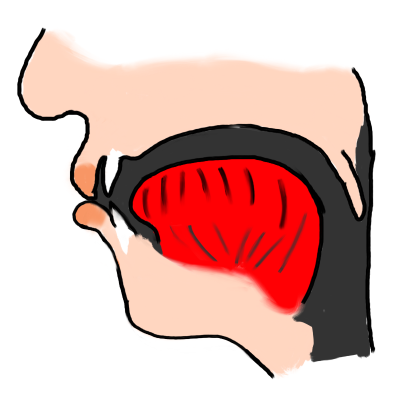 | A French 'p' is generally pronounced in a similar way to an English 'p' in "spit", "sport" etc. In other words, it is not usually followed by a "strong burst of air" (aspiration) as in the 'p' sound of English "pit", "port" etc. If you are a native English speaker, put your hand in front of your mouth while you say "port" then "sport"; you'll feel a stronger breath of air with the first of these words. When you pronounce a French 'p' sound, you do so as in the second of these words, so that you don't hear or feel the strong breath of air. | |
| ɔ | 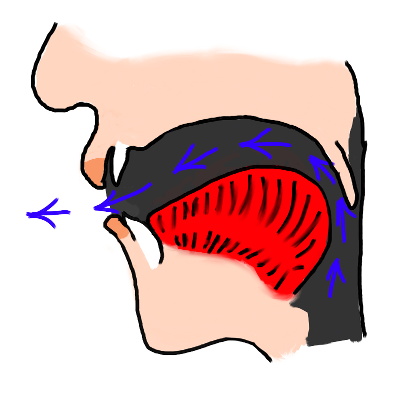 | To an English speaker, the French 'open o' vowel does not necessarily sound much like an 'o' vowel. In reality it is often much more similar to the "neutral" 'e' vowel of English "the". Hold the tongue in a position where you imagine the body of the tongue "slightly further back than the center of the mouth", with the lips slightly rounded. | |
| ʁ | 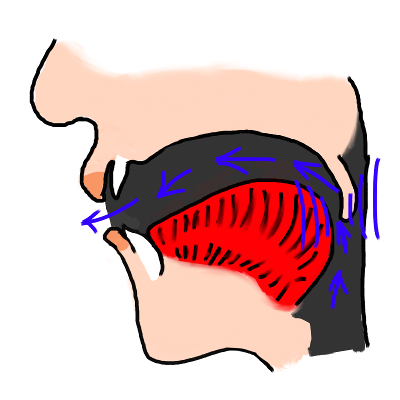 | The French 'r' is generally what is technically called a "uvular fricative". In simple language, that means you bring the back of your tongue close enough to the back of the mouth that it causes friction (the "raspy" sound that you hear) with the escaping air. | |
| t | 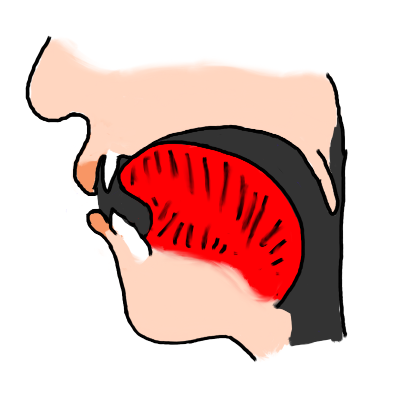 | The French 't' is pronounced like an English 't' after a 'th' sound (as in "with two"). Your tongue touches the back of the teeth. Also try to avoid a "strong burst of air" (aspiration) as in English. If you are a native English speaker, repeat the word "tool" then "stool" with your hand in front of your mouth. In "tool", you'll feel a stronger burst of air than in "stool". In French, pronounce the 't' as in English "stool", without the strong burst of air. | |
| e | 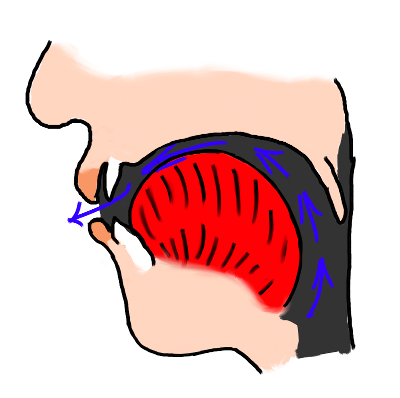 | The French 'close e' vowel, often written é, is pronounced with the tongue almost as far forward in the mouth as it will go, and fairly close to the roof of the mouth. Keep your lips fairly spread and aim to "hold your tongue and lips in position" (to avoid producing it as a "glide" or diphthong) as you pronounce it. |